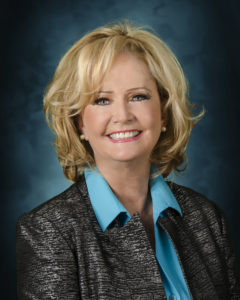With 25 years’ experience in law enforcement, Captain Carol Rasor-Cordero brings a wealth of knowledge and insight to her work with the Center for Public Safety Management (CPSM), where she serves as a senior associate.
As a young child, Rasor-Cordero remembers her father coming home in his New York Police Department uniform. Little did she know that someday she too would have a successful career of her own in law enforcement.
Rasor-Cordero was always attracted to professions where she thought she could help others. During her studies at the University of South Florida, she first chose psychology as her major but later switched to criminal justice. She considered law school and even took the LSAT, but an internship at the Pinellas County Sheriff’s office during the final semester of her senior year convinced her to choose police work.
“Law enforcement is more exciting than being a lawyer,” says Rasor-Cordero.
She was impressed by the office’s progressive technology and enjoyed going to work every day not knowing what would happen.
Her parents and grandmother supported her decision.
Rasor-Cordero’s mother, who was born with only one arm, faced many challenges in life.
She told her daughter, “You can never fail if you try; it’s the trying that matters.”
Judging by her resume, degrees and accomplishments, Rasor-Cordero has been trying and not failing ever since.
At 5 feet, 3 1/2 inches tall, and just 115 pounds, she stunned the male instructors of a Highway Patrol training class she took in order to become a defensive tactics instructor. They had never had a woman take their class before. Two men dropped out after finding the class too physically intense, but Rasor-Cordero passed it successfully.
In addition to defensive tactics, she was also certified and taught firearms and driving.
She went on to serve 15 years on the Hostage Negotiation Team and was appointed team leader. She established the agency’s Domestic Violence Unit, the Sexual Predator and Offender Unit, and the Citizen’s Community Policing Institute. She served as a training advisor and played a significant role in transforming the Pinellas County Police Academy from a vocational program to a progressive program that offers college credit at St. Petersburg College.
According to her official St. Petersburg College faculty bio, Rasor-Cordero has a Ph.D. in Education with a cognate area in Management, a Master’s degree in Criminal Justice, and a Bachelor’s degree in Criminal Justice from the University of South Florida. She has served as a national evaluator for the Bureau of Justice Assistance.
When asked what is the greatest challenge facing law enforcement today, Rasor-Cordero answers, “Without a doubt, it’s recruitment.”
She notes the high standards we expect of law enforcement—“We don’t ask doctors to wear bodycams”—and that other professions have less risk and better pay.
For women considering a career in law enforcement, she says: “Don’t let anyone discourage you from what you believe is your dream, but prepare yourself physically, emotionally, mentally.”
Rasor-Cordero sees eerie similarities between military service and law enforcement—both honorable professions that face increased pressure, scrutiny, and suicides.
She knows all too well from painful firsthand experience. As a trained crisis negotiator, she was able to talk others out of taking their own lives, but not her own son. After serving six years in the Marines Corp, with deployments in Afghanistan and Iraq, he committed suicide in 2017 in Oregon.
Following the tragedy, she teamed up with Veterans Counseling Veterans to provide support to other families who have lost a veteran.
Rasor-Cordero joined CPSM after meeting Leonard Matarese during a conference she was attending. After hearing him discuss police staffing, she became convinced “he has a genius approach for how to measure efficiency and performance of law enforcement agencies.”
Her first assignment was as a team leader in Sandy Springs, Georgia. In the years since, Rasor-Cordero’s enthusiasm for CPSM has only grown stronger.
“It’s a great organization, and I can’t say enough good things about Leonard Matarese. Everyone I work with are very accomplished people with outstanding resumes. It feels good to be part of something bigger than yourself.”
To read Rasor-Cordero’s bio, visit https://www.cpsm.us/about/team/captain-carol-rasor-cordero/
About CPSM
CPSM provides training and research for ICMA’s members and represents ICMA in its dealings with the federal government and other public safety professional associations, such as the International Association of Chiefs of Police, International Fire Chiefs Association, Bureau of Justice Assistance, Commission on Accreditation for Law Enforcement, Police Executive Research Forum, International Public Management Association for Human Resources, U.S. Department of Justice (DOJ), National Fire Protection Association, and others. CPSM also represents local governments at the federal level and has been involved in numerous projects with DOJ and the U.S. Department of Homeland Security.

